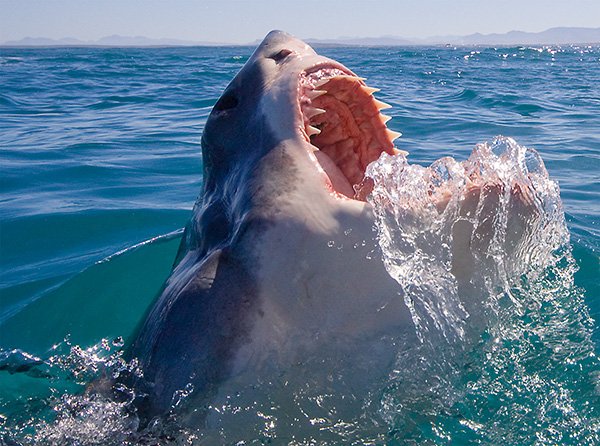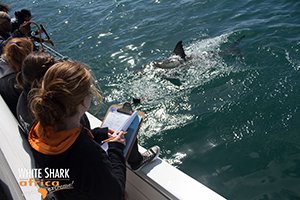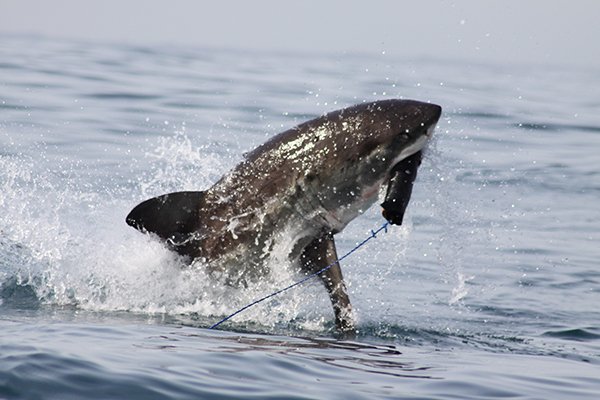SHARK CONSERVATION IN SOUTH AFRICA ***A MUST read for any ocean and shark LOVER!***
In South Africa, as in many other countries worldwide, the conservation of all our shark species has become a matter of utmost importance. Without the intervention of conservationists, numbers will continue to dwindle, eventually leading to extinction.

The plundering of a once abundant wilderness, with little understanding or consideration of the possible consequences, combined with the severe lack of public awareness, may lead to a global ecological disaster.
The South African Shark Conservancy (SASC), is based in Hermanus, about 120 km east of Cape Town. Studying sharks
has been their priority for the past 11 years. They have created a Shark Academy for students that want to pursue a career in marine science. The aim is to provide these students with the necessary tools and skills, to ensure that they are properly prepared for the future. The academy has interns, as well as volunteers. Focus is emphasized on lab, field and dive training.
In Gansbaai, the Great White Shark capital of the world, not too far from Hermanus, they offer a work and volunteer experience, to learn more about the Great White Shark. Here you can experience the sharks up-close, from the safety of dive cages, while documenting shark activity using data collection methods.
Observations include parasites that are found on sharks, their interaction with other species, wound healing capabilities and their superior immune system, migrating patterns, feeding, and behavioral habits. Thousands of photographs are taken and added to a very large database that is shared nationally and internationally. Tagging and dorsal fin identification is also shared on this database.
Dyer Island (Shark Alley) is one of the best spots in the world for viewing Great White sharks, making it perfect for research and conservation studies.
Having a life-long passion for marine life, Wilfred Chivell established the Dyer Island Conservation Trust (DICT). The
Trust was initially conceived in the ’90s, and was officially founded in 2006. A necessity had arisen for the protection of
increasingly threatened species found in the area. In an effort to create long-term marine conservation and eco-tourism, DICT funds and logistically supports local marine-based environmental education and research programs.
One of these programs, Faces of Need – Great White Shark Research, has produced the first population estimate of these sharks, influencing national and international protective measures. Boat based observational data, acoustic tagging and tracking; have created a much better understanding of the behaviour of the Great White Shark. Crucially needed scientific papers have been published by DICT, to assist in conservation.
Environmental education plays a huge role for future generations to have a better understanding of our precious
marine life. DICT runs a program that targets previously disadvantaged groups of young learners. The program runs for
a period of three years at a time, with the aim to expose the young learners to conservation and science efforts required for future skills training.

Part of this program is the Shark Egg Case Collection Program, involving students collecting shark
egg casings on designated beaches, identifying the shark species to whom the casing belongs, and giving feedback to
the program coordinator. Education of the youth will have a large impact on future conservation efforts worldwide.
Michael Rutzen, who owns and operates a Great White Shark cage diving company in Gansbaai, states that at one time, it was not unusual to see 15 – 20 Great White Sharks per trip, whereas now he only sees one or two. His marine biologist
partner, Sara Andreotti, estimates that there are about 333 breeding animals left in the area. A healthy, growing population requires at least 500 breeding sharks. The local sharks are known to not breed with sharks from other locations.
The decline in numbers is due to shark nets, pollution, and baited hooks. Poaching also has an impact on the numbers, with people wanting to display the shark’s jaws as a trophy. With fewer Great Whites to prey on the seals, the seal population has rapidly grown, which has a negative effect on the fish population and the rest of the ecosystem.

Great White Sharks are top predators, if they were to become extinct, it will have massive implications for the ocean’s ecology. In South Africa, the Great White Shark is listed as endangered and protected. Killing is prohibited and selling any Great White Shark parts, is against the law.
The importance of education and conservation cannot be emphasized enough if we are to have these magnificent
predators around for future generations to observe them in their natural habitat.
Congratulations @travelsa! You received a personal award!
You can view your badges on your Steem Board and compare to others on the Steem Ranking